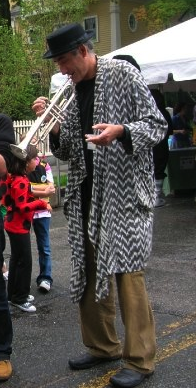Recently, a comment was posted in response to my piece about Abbey Lincoln and her intense song Throw it Away. "I'd like to sing it," the commenter wrote, "but I'm afraid I'd start sobbing onstage."
I immediately thought of the Antonio Carlos Jobim song "DIndi," as recorded on Wayne Shorter's 1969 LP "Super Nova." it is the only performance I know-live or recorded- which actually includes a performer crying.
The first part of the track is percussion-mainly Brazilian-and soprano sax outbursts, which in no way prepares you for the vocal, which comes in at about 4:00. The vocal lasts about 3 minutes and the song ends with several more minutes of percussion and sax, alternatingly spacey and aggressive.
The vocalist is Maria Booker. Maria was bassist Walter Booker's wife and Shorter's sister-in-law. She was not a professional singer, but Bluenote producer Duke Pearson had heard her emotional version of Dindi. The accompaniment was just Walter Booker on classical guitar-a stark contrast to the other sections of Shorter's arrangement.
The lyrics of the song are fairly evocative and, indeed, from the beginning, Maria sounds deeply invested. As the song proceeds, she clearly becomes more and more emotional and barely manages to finish, gasping out the last few lyrics. Then, she starts sobbing softly.
I heard Super Nova a few years after its initial release and my first response was shock. I felt Dindi was lovely, but was unsure if the crying was just a show-biz add-on. My willingness to release deeply into the song hung on whether or not I believed in the veracity of Maria's tears. After a moment's hesitation, I bought in.
Now, so many years later, I read that Maria and Walter separated just after the recording. What seemed real, apparently was.



There's a fine Flora Purim version of "Dindi" on her album "Butterfly Dreams" but Maria Booker's vocal is heartbreaking. A beautiful tune, like much of Jobim's work.
ReplyDeleteDid you get to see Wayne Shorter when he was in town a few weeks ago? Caught the last bit of the Q and A at the Boston Public Library. The music he is playing these days is unlike anything I've ever heard before. There's something new being born which partakes of jazz and classical and world and pop and all the available styles but relies on the supreme musicianship and EARS of the players. I hear it in Shorter's group, Brad Mehldau's new music, and sometimes in Terence Blanchard.
Did you believe in the "veracity" of Maria Booker's emotion right away?
ReplyDeleteDidn't see Shorter although, in the interests of full disclosure, since its dramatic reappearance on the scene in the 70's, I'm not that interested in the soprano. Mea culpa.
My first boyfriend was a jazz enthusiast. I heard Super Nova when I was 18 and madly in love. I've been searching for this version of Dindi since iTunes came along. Wasn't sure what I was looking for so thanks for this because now -- while I don't much care for Shorter -- I can have the song. Thank you thank you.
ReplyDeleteI'm very glad you found it. It's the kind of song that can hold a lot of emotional weight.
ReplyDeleteThe reason Maria Booker is so emotional is because this song was written by Jobim for Sylvia Telles whose nickname was Dindi. She was the first person to record it in 1959, and died tragically in a 1966 car accident. As the lyrics literally evoke the sad emotions of the songwriter without Sylvia "Dindi" Telles, it takes on tragic new meaning after her death, when Maria Booker sang it.
ReplyDelete